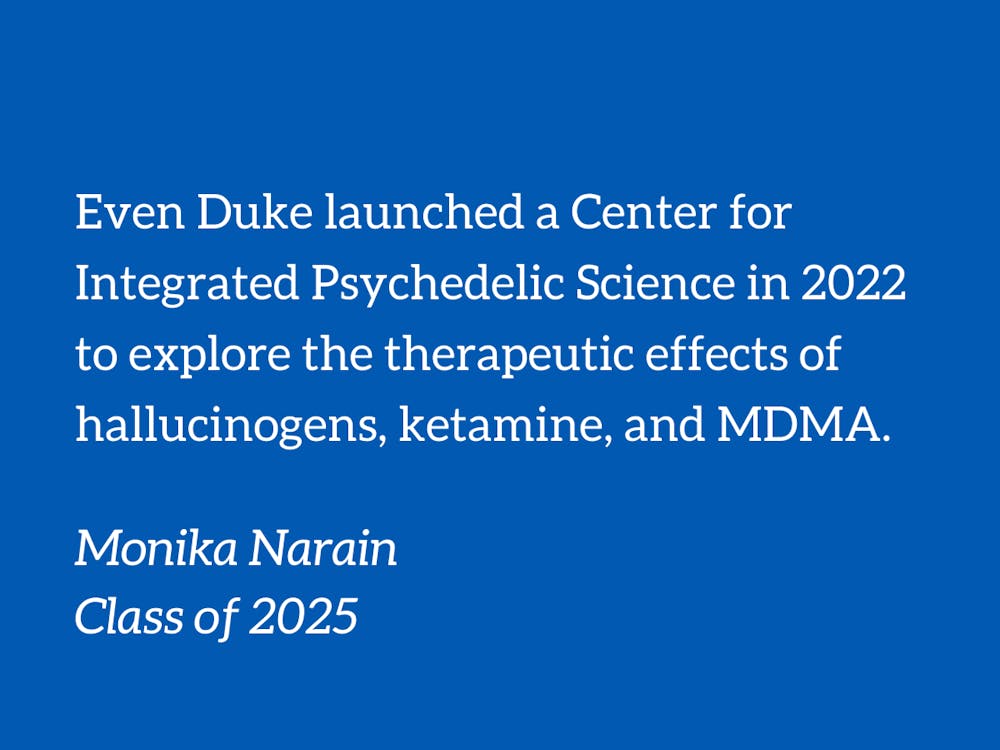It has long been my dream to write an article about psychedelics, not just because I’m a self-proclaimed “fungi,” but because I have always been fascinated by these transportive, hallucinogenic and dissociative substances and the wild adventures our minds experience from their consumption. Having long been associated with insanity, rebellion, the 60s and California, psychedelics are becoming increasingly popular in clinical spaces. A growing number of studies reported psychedelics having great promise in reducing symptoms of depression, anxiety, migraines and PTSD. Patients report an improved ability to address and process trauma when conventional treatment options fail, in addition to a stark reduction in behaviors related to more prevalent addictions like alcohol and tobacco.
In the 1970s, the federal government classified psychedelics – including shrooms, ketamine, ayahuasca, mescaline, and LSD — as Schedule 1 substances, making them illegal to possess even for research. But following a surge of studies from the mid-2010s, psychedelics have become a core tenet in dozens of hundreds of labs, consortiums, conferences and medical training programs around the world. Even Duke launched a Center for Integrated Psychedelic Science in 2022 to explore the therapeutic effects of hallucinogens, ketamine and MDMA. However, it’s difficult to find information about the current funding and progress of their work, and the center’s website is now defunct.
At first glance, the idea of having a licensed health professional doling out baggies of shrooms in the name of “recovery” seems farcical (unless, of course, your psychiatrist is really cool). Of course, psychedelic therapy is not like Burning Man at your local private practice. Before even taking the drug, a trained therapist would meet with you for several preparatory sessions, to delineate exactly what to expect and to obtain full consent. During the actual drug session, you would be lying down with your eyes closed after taking a very low dose of the drug, with your therapist present to help you through any uncomfortable visions or sensations. Finally, you would have an integration session in the days and weeks after the trip, which functions just like a traditional talk therapy session. The goal is to take the insights from the trip and apply them to your own life and repeat the process over several sessions to achieve a newfound understanding of one’s emotions and self-perceptions.
The interesting thing about psychedelics is that no one really knows how it works and why it’s so effective. Certain compounds like psilocybin and LSD have been shown to activate serotonin receptors, while others like ketamine increase the transmission of glutamate, an excitatory neurotransmitter. Some hypotheses suggest that psychedelics can enhance the growth of new neuronal connections in the brain, although the exact mechanisms behind this are unknown. Nevertheless, the marked success in early-stage clinical trials of psychedelic therapies has prompted a greater push for research funding and legalization of these substances as a whole.
Currently, the sale, distribution, and use of psilocybin mushrooms, ecstasy and LSD are illegal in North Carolina, punishable by fines over $50,000 and prison time. However, this year NC legislators approved a new bill that will allocate five million dollars to some hospitals to offer psychedelic drug therapy to patients with PTSD. It will also create an advisory board of experts to make recommendations about how these medicines can responsibly be made and administered in North Carolina. The bill is primarily sponsored by representatives John Autry and Allen Chesser, who are both veterans who suffer from chronic PTSD. As of May 2023, the bill has been referred to the House Appropriations Committee before potentially receiving consideration on the floor.
To be clear, this potential bill would not legalize recreational psychedelics but rather serve as a tool to gain information for when these drugs are available for proper implementation. However, much of the pushback still stems from the stigma that psychedelic substances are “dangerous” and “unuseful” when research clearly demonstrates otherwise. Although the stereotypes of psychedelics can be funny, when it comes at the expense of accessing holistic medical care for historically treatment-resistant illnesses, it doesn’t seem as “groovy” anymore.
Monika Narain is a Trinity junior. Her column typically runs on alternating Thursdays.
Get The Chronicle straight to your inbox
Signup for our weekly newsletter. Cancel at any time.

